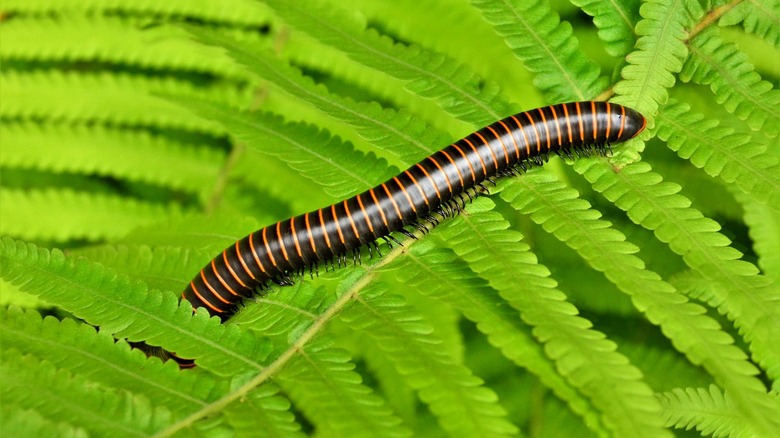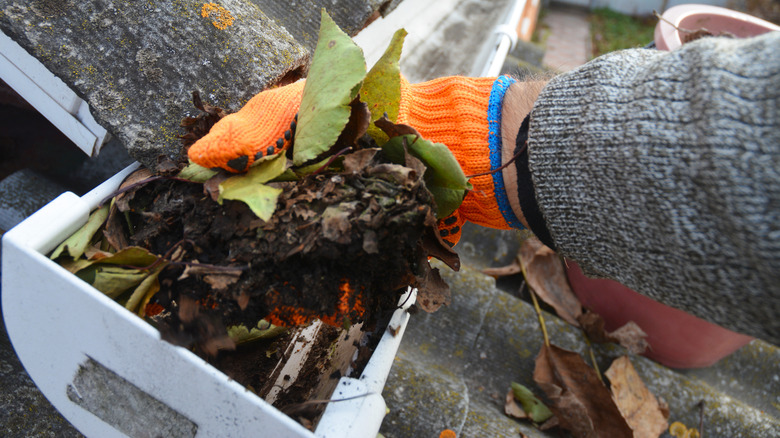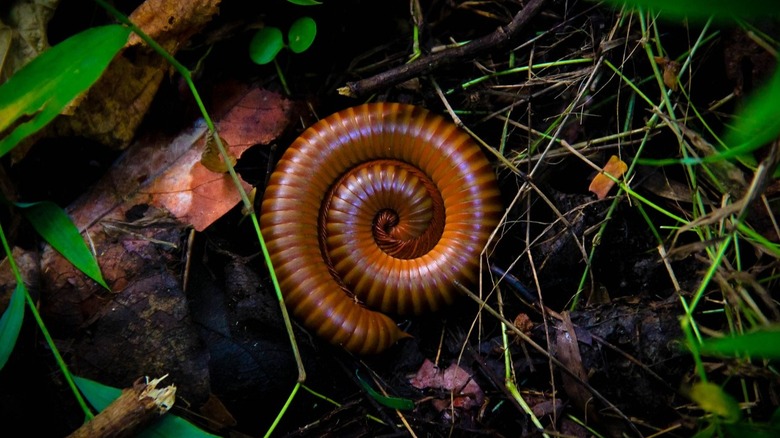How To Keep Millipedes Out Of Your Garden
While millipedes are often beneficial insects that will feed on rotting leaves and plants, essentially composting them, they can become a pest when their numbers increase or if their food sources are running low. Millipedes have been known to eat the roots of tomatoes, turnips, strawberries, cabbage, corn, potatoes, carrots, and beans, causing destruction in your garden. They will sometimes target seedlings, eating the leaves and stems of the plants, and will go after the bulbs of flowers and burrow into tubers. If you're worried about millipedes becoming a predator to your vegetable garden, there are several ways to prevent them from hanging out in your yard.
Millipedes are active at night and enjoy moist, dark environments. By removing places they may hide, such as under stones, stacks of firewood, or piles of leaves or grass clippings, you'll be able to keep millipedes out of your garden, and they will stop eating your plants.
Preventing millipedes from entering your garden
Because millipedes are fond of damp environments, getting rid of standing water will help to keep them away. You may want to see if your flower pots are holding excess rainwater or if your gutters are clogged, which can hold moisture. While it may seem like you'll need to empty your birdbath, these fixtures shouldn't attract millipedes if you change the water frequently. If you use sprinklers to keep your grass green, try setting them to water your lawn in the morning. This will help ensure the grass isn't soaked at night when millipedes are out and about.
These arthropods are also known to take cover in tall grass or untrimmed bushes, so keeping up with your lawn care will prevent them from sheltering in your yard. If you do keep stacks of wood for your fire pit, elevating them from the ground will discourage millipedes from hiding there. If you do see a few millipedes in your garden, simply sweep them with a broom to another location, like near your compost.
Why you should think twice before exiling millipedes
Millipedes may look creepy because of their hundreds of legs and winding, segmented bodies, but these creatures are fairly harmless to humans. Though they will produce a smelly fluid when handled that some people are allergic to, they don't bite and will not bother you if you leave them alone. Millipedes also prefer to eat decaying plant material, and the fruits and veggies growing in your garden are a last resort for them. Rather than eradicating these creatures, try to keep them near your compost pile, where they will be a big help, instead of in your garden.
If you have an infestation of millipedes or if they won't leave your plants alone, which is not very common, try spreading small amounts of wood ash over the soil. This helps to repel millipedes and will keep them from laying eggs, but take caution, as too much wood ash is sometimes harmful to the soil.


